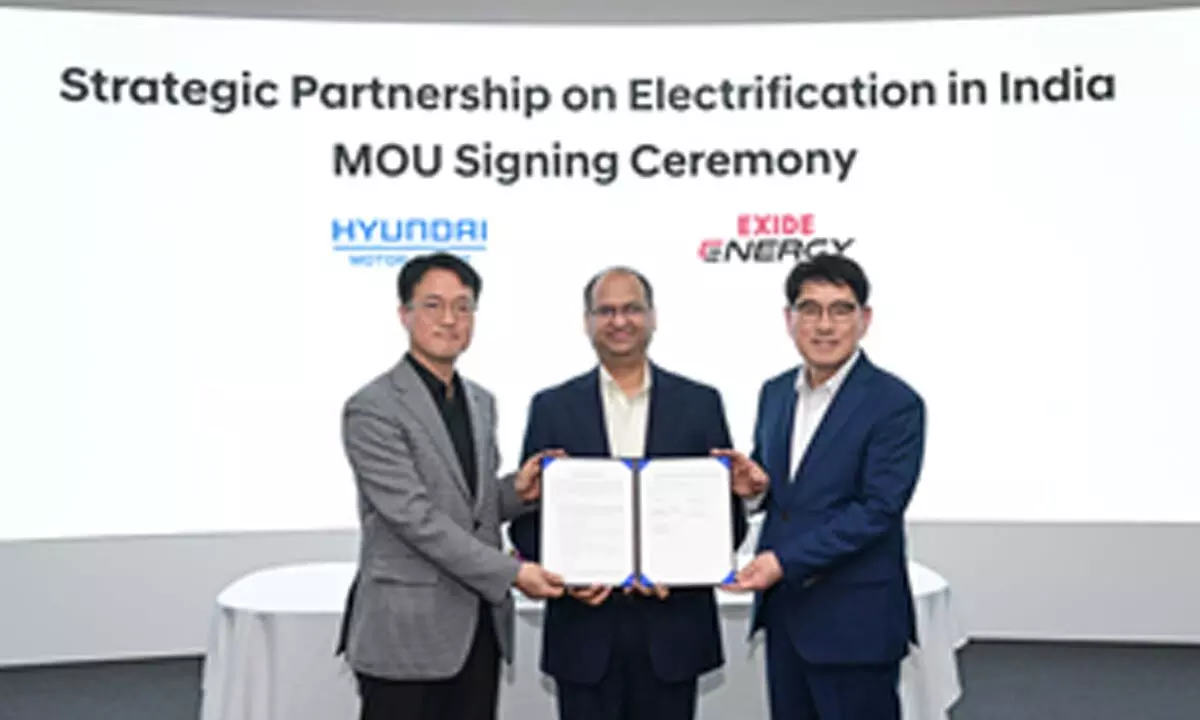Hyundai Motor Group, Exide Energy join hands for Indian EV model battery cells
Share :

Hyundai Motor and Kia on Monday entered into a strategic partnership with leading battery company Exide Energy, as part of their electric vehicle (EV) expansion plans in India.
New Delhi: Hyundai Motor and Kia on Monday entered into a strategic partnership with leading battery company Exide Energy, as part of their electric vehicle (EV) expansion plans in India.
With this partnership, the automaker aims to localise their EV battery production, specifically focusing on lithium-iron-phosphate (LFP) cells, marking the beginning of Hyundai Motor and Kia’s effort to expand its exclusive battery development, production, supply and partnership in the Indian market.
"Through this global partnership with Exide Energy, we will gain a competitive advantage by equipping Hyundai Motor and Kia’s future EV models in the Indian market with locally produced batteries," Heui Won Yang, President and Head of Hyundai Motor and Kia’s R&D Division, said in a statement.
"India is a key market for vehicle electrification due in part to the government’s carbon neutrality goals, which makes securing cost competitiveness through localised battery production crucial," Yang added.
Established in 2022, Exide Energy is a dedicated EV battery subsidiary of Exide Industries Ltd., India's leading battery company. It is expected to start mass production of Hyundai and Kia EV battery cells as early as the end of 2024.
India has recently been actively pursuing EV-related policies, including providing incentives to companies starting EV production in the country. It has also announced a plan to expand the share of EV sales to 30 percent of total automobile sales by 2030.
Through the partnership, Hyundai Motor Group seeks to secure price competitiveness in the cost-sensitive Indian market by localizing the production of batteries, which constitute a significant portion of EV costs.
